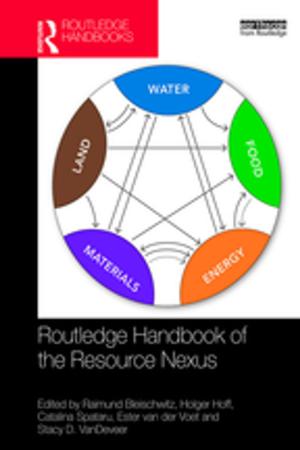Subjectivity and the Political
Contemporary Perspectives
Nonfiction, Religion & Spirituality, Philosophy, Political| Author: | ISBN: | 9781351966221 | |
| Publisher: | Taylor and Francis | Publication: | October 12, 2017 |
| Imprint: | Routledge | Language: | English |
| Author: | |
| ISBN: | 9781351966221 |
| Publisher: | Taylor and Francis |
| Publication: | October 12, 2017 |
| Imprint: | Routledge |
| Language: | English |
Despite, or quite possibly because of, the structuralist, post-structuralist, and deconstructionist critiques of subjectivity, master signifiers, and political foundations, contemporary philosophy has been marked by a resurgence in interest in questions of subjectivity and the political. Guided by the contention that different conceptions of the political are, at least implicitly, committed to specific conceptions of subjectivity while different conceptions of subjectivity have different political implications, this collection brings together an international selection of scholars to explore these notions and their connection. Rather than privilege one approach or conception of the subjectivity-political relationship, this volume emphasizes the nature and status of the and in the ‘subjectivity’ and ‘the political’ schema. By thinking from the place between subjectivity and the political, it is able to explore this relationship from a multitude of perspectives, directions, and thinkers to show the heterogeneity, openness, and contested nature of it. While the contributions deal with different themes or thinkers, the themes/thinkers are linked historically and/or conceptually, thereby providing coherence to the volume. Thinkers addressed include Arendt, Butler, Levinas, Agamben, Derrida, Kristeva, Adorno, Gramsci, Mill, Hegel, and Heidegger, while the subjectivity-political relation is engaged with through the mediation of the law-political, ethics-politics, theological-political, inside-outside, subject-person, and individual-institution relationships, as well as through concepts such as genius, happiness, abjection, and ugliness. The original essays in this volume will be of interest to researchers in philosophy, politics, political theory, critical theory, cultural studies, history of ideas, psychology, and sociology.
Despite, or quite possibly because of, the structuralist, post-structuralist, and deconstructionist critiques of subjectivity, master signifiers, and political foundations, contemporary philosophy has been marked by a resurgence in interest in questions of subjectivity and the political. Guided by the contention that different conceptions of the political are, at least implicitly, committed to specific conceptions of subjectivity while different conceptions of subjectivity have different political implications, this collection brings together an international selection of scholars to explore these notions and their connection. Rather than privilege one approach or conception of the subjectivity-political relationship, this volume emphasizes the nature and status of the and in the ‘subjectivity’ and ‘the political’ schema. By thinking from the place between subjectivity and the political, it is able to explore this relationship from a multitude of perspectives, directions, and thinkers to show the heterogeneity, openness, and contested nature of it. While the contributions deal with different themes or thinkers, the themes/thinkers are linked historically and/or conceptually, thereby providing coherence to the volume. Thinkers addressed include Arendt, Butler, Levinas, Agamben, Derrida, Kristeva, Adorno, Gramsci, Mill, Hegel, and Heidegger, while the subjectivity-political relation is engaged with through the mediation of the law-political, ethics-politics, theological-political, inside-outside, subject-person, and individual-institution relationships, as well as through concepts such as genius, happiness, abjection, and ugliness. The original essays in this volume will be of interest to researchers in philosophy, politics, political theory, critical theory, cultural studies, history of ideas, psychology, and sociology.















